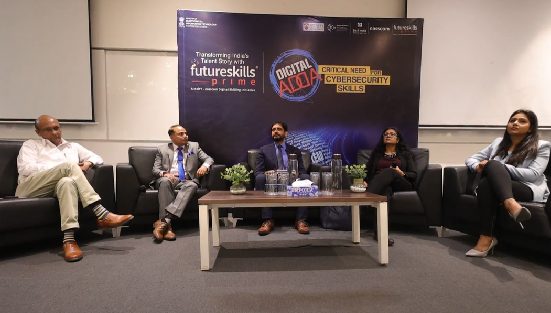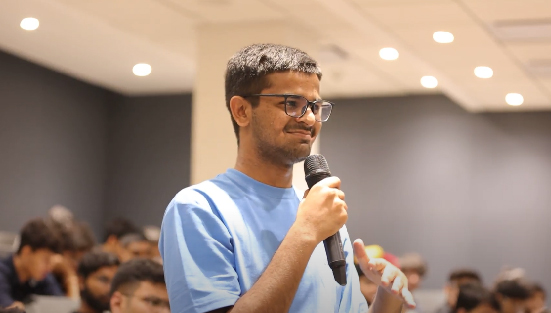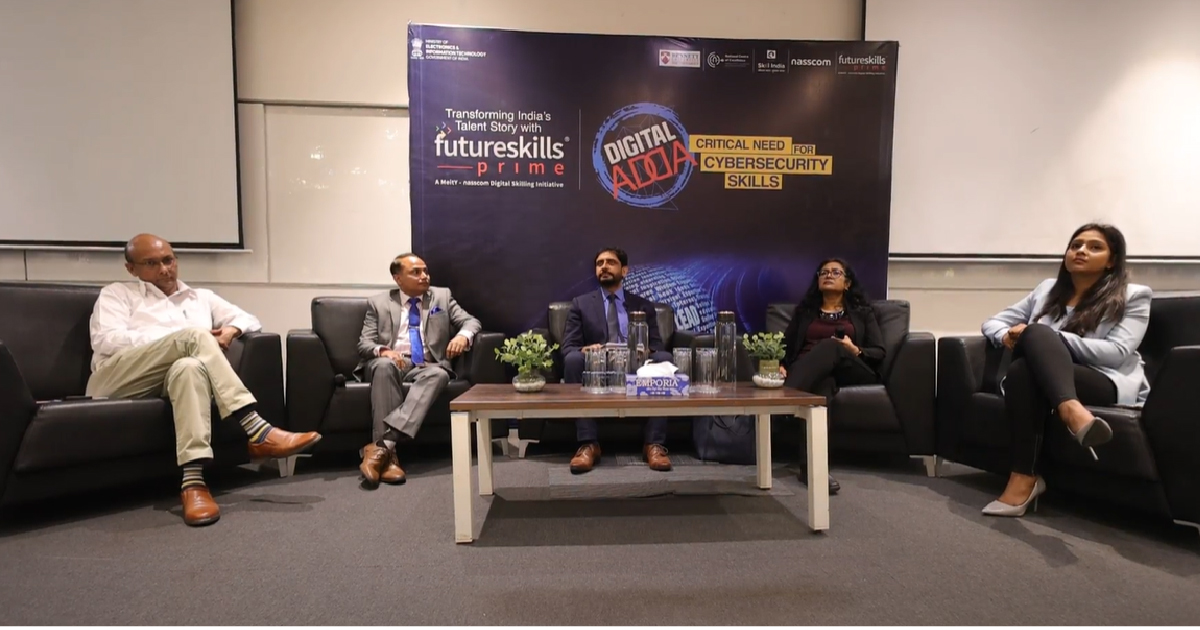Digital Adda- How to Make a Career in Cybersecurity
A recent Cisco survey revealed that 80% of respondents in India experienced a cyber security attack in the last 12 months, compared to 57% globally. There is a dire need for individuals and organizations alike to protect themselves against cyber-attacks. Cyber breaches often arise out of lack of awareness and knowledge about security measures to be taken. This problem is made even more acute by the significant shortage in availability of skilled talent in the field of Cyber Security.
To this end, nasscom FutureSkills Prime in collaboration with Bennett University invited cybersecurity experts to address students on the “Critical Need for Cybersecurity Skills” at the Digital Adda round table session. Industry insights were shared by the leaders and students gained an understanding of how to enter the field upon completion of their degree/certification courses.
Here are the key highlights:
Where to Start

Lt Col Nishant Singh, Head of the Cyber Division of GMR Group, advised students to start by identifying the domain of their choice – risk assessment, incident response time etc. Find out the organizations who provide these services. Try to train with them and work on practical real-life projects. Theoretical knowledge will not serve much purpose unless it is accompanied by some real life business problem-solving. Students should do internships for at-least six months to gainfully learn the trade and then opt for further certification.
Shambhavi Srivastava, co-founder & CEO at The Intect, shared that traditional methods of recruiting like employment websites are passe. She believes that it is imperative for aspirants to differentiate themselves from the mass of students who graduate every year and urged the students to be active on social media platforms, especially LinkedIn and Telegram and showcase their best projects.
Securing the Organization and winning Client Trust
Rahul Sharma, Vice President Information Technology, MattsenKumar LLC, brought home the point that the en masse move towards WFH meant that just one gate had to be hacked to reach the core network. Cybersecurity standards need to be created and followed which means firewalls and end point security must best in class. Secure VPN needs to be erected. Business continuity is essential and critical, so security systems need to be tested regularly. To ensure customer trust, MattsenKumar diligently invites them to conduct security audits.

On how to prevent zero-day attacks, Shalini Misra, Group Digital Offerings Leader, Sopra Steria, said that since you do not know what it is, you cannot be prepared for it. What needs to be considered are the hygiene factors as each integration point is vulnerable.
Protecting yourself from cyber fraud
This was followed up by a session by Dr Sarabjit Kaur, Associate Director National CoE (Centre of Excellence) and DSCI who shared useful tips on cybersafety.
To view the complete session, click here:
Written by Kaamna Jain


